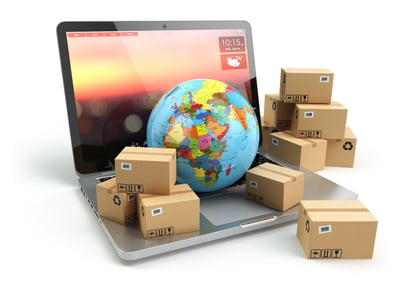5 logistics essentials for retail companies
The entire world is adapting to the new and shifting realities of the coronavirus pandemic—including retail businesses.
- Many companies are now opting to sell online rather than selling through traditional brick and mortar stores.
- Shipments from the Far East, that traditionally terminated in warehouses in Vancouver, now ship direct to fulfillment centers across Canada and especially East Coast terminals.
- Communication breakdowns mean your customs broker and freight forwarder spend time chasing the necessary information and commercial paperwork. With proper communication, both time and money are saved.
 While the retail landscape is adapting rapidly to a changing world, the essentials of a smooth supply chain don’t change.
While the retail landscape is adapting rapidly to a changing world, the essentials of a smooth supply chain don’t change.
5 logistics best practices for retail
1. Communication is everything.
The most important factor in an efficient retail supply chain is maintaining accurate, complete communication and information flow. Without that, mistakes and delays happen, which affect the movement of your goods.
Retail companies need to ensure they are maintaining open communication with all parties involved in the movement of freight cross border, including:
- shippers,
- vendors,
- carriers, and
- Customs brokers.
Watch out for communication lapses between the freight forwarder and the actual carrier, which can cause additional issues with the clearance and service delays. Also, ensure that your partners have all the information they need; incomplete communication is as bad as inaccurate information.
Communication breakdowns mean your Customs broker and freight forwarder spend time chasing the necessary information and commercial paperwork. With proper communication, both time and money are saved.
2. Do your homework.
As an importer, you need to educate yourself. Do your homework before starting or expanding your business, and before changing directions in response to market shifts.
You’ll need to have a clear understanding of:
- the domestic requirements and regulations that might impact importing your goods into Canada, such as marking, labelling, permits, certifications, licenses, approvals etc...
- The costs (especially hidden ones) to bring shipments into the country;
- Customs clearance paperwork;
- operational processes; and
- the necessary CBSA requirements in ensuring speedy and expedient Customs clearance.
Lean on your service providers to help educate you as well:
- Be sure you know what is needed before they ship your goods.
- Ask lots of questions.
Retail companies should be also mindful of transit times. Sometimes it may take longer to ship goods. Other times, goods get stopped and examined at Customs, creating potential delays. Proper communication and doing your homework means you’ll be ready.
3. Be proactive rather than reactive.
Anticipating problems and change makes your business far more nimble if you need to react quickly:
- Create and follow detailed SOPs (standard operating procedures).
- Maintain open lines of communication in the event of delays or escalations.
- Develop a clear and reliable feedback mechanism.
- Establish an ongoing and updated database of products being shipped with your trade partners.
- Make sure your logistics partners have product information upfront to ensure smooth Customs clearance. This allows your Customs broker to always have updated and accurate product information and the related Customs clearance information.
4. Get your documents in order (and keep them that way).
A common mistake some companies make is not sending the right paperwork on time to their Customs broker prior to arrival of the shipment at the border. This may include either missing Customs clearance documentation, or missing information on the documentation that is pertinent in getting the shipment cleared on time.
- Ensure your Customs clearance documentation is consistent and complete each and every time.
- Include all the necessary information required, such as: descriptions, values, origins, currencies, etc.
- In the event of documentation discrepancies, make sure you have an exception handling mechanism in place.
- Provide any required permits, certificates or licenses to your Customs broker prior to arrival and remember originals may be required.
- Work directly with logistics providers and vendors to resolve any open issues to prevent future delays on shipments.
Heads up...one common issue that crops up is the carrier’s inability to send Customs brokers the necessary Bill of Lading and Customs documentation within two hours of arriving at the border, as is required by CBSA. These types of paperwork delays ultimately cause operational stresses in attempting to clear the shipment in time before the carrier arrives at the border.
5. To permit or not to permit
Importing goods that require permits, licenses or certificates can add a layer of complexity to the import process.
Some importers choose products that specifically do not require permits. Done intentionally, this keeps the overall Customs clearance process very simplified. It’s one way to streamline the logistics of retail importation.
At Cole International, we are proud to be a full-service logistics provider integrating freight forwarding and customs brokerage to serve retail companies across North America.
Retail logistics. It's what we do.
Suggested Articles on Logistics Essentials:
Five Oil & Gas Logistics Essentials
5 Logistics essentials for vehicles importers

